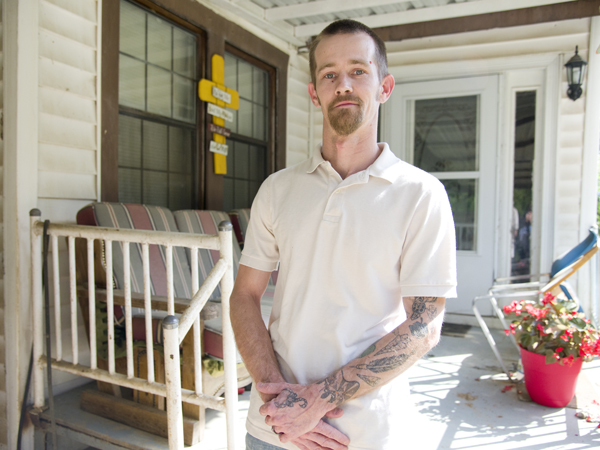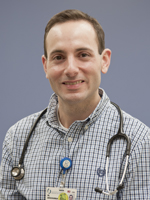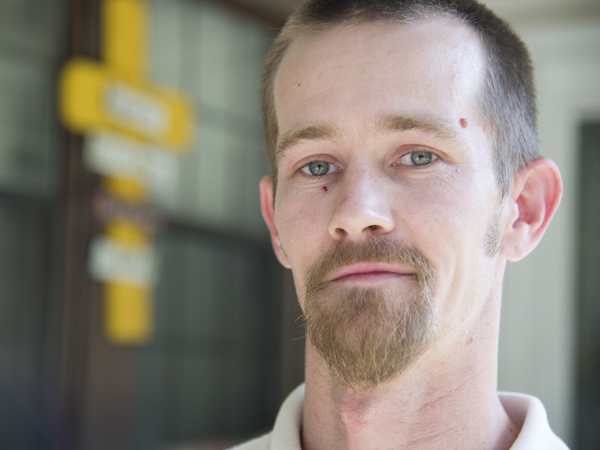To test, or not to test?

Published in News Stories on May 11, 2015
When movie star Angelina Jolie faced head-on her family history of cancer and sought genetic testing that led her to preventive removal of her breasts, ovaries and fallopian tubes, she was hailed by many as courageous and forward-thinking.
Jolie has a mutation in a breast cancer gene that leads to a significant increased risk for breast and ovarian cancer, one that makes her a no-brainer candidate for genetic counseling and testing. She lost her mother, grandmother and aunt to ovarian cancer, and her mother also had breast cancer.
But just because you fear - or wonder - if you're likely to fall victim to cancer or another serious disease, or pass it on to your kids, that doesn't mean you should undergo genetic testing, experts say.
"You shouldn't do it if there's not a strong reason for it," said Dr. Omar Rahman, a University of Mississippi Medical Center geneticist and professor of pediatrics. "You might find a change that is actually benign, but it could lead to patient anxiety."
According to the National Institutes of Health Genetic Registry, there are 26,000 genetic tests for 5,400 conditions. Testing involves collection of blood samples and can run between $1,000 and $2,000, and it's not always covered by insurance, Rahman said.
He cites two core reasons to see a genetic counselor and possibly get tested: A family history of cancer or other diseases that are genetically passed on, or the onset of cancer or another serious disease much earlier than it's usually seen, especially breast cancer in women under 50.

Rahman
"The vast majority of cancers are not inherited, and only 5 to 10 percent of breast cancers are genetic," Rahman said. "For someone like Angelina Jolie, if we'd had that conversation, then it would make sense to proceed with the testing."
"When you think of breast cancer, we know that one in eight women will develop it in their lifetime. With or without a genetic test, we know that," said Holly Zimmerman, one of Mississippi's four certified genetic counselors. All are on UMMC's staff.
"In the world of genetics, when we think of counseling and genetic testing, we want to give valuable information to patients and their providers," she said.
That's exactly what Yazoo City resident Max Weldon needed.
The 33-year-old father for years had simply not felt well. He often labored to breathe. "When I look back on it now, all my life I was sick, but I didn't pay any attention to it until I was about 26," said Weldon, who is self-employed in construction.
About three years ago, his weight plummeted "and my breathing got 10 times worse," Weldon said. His primary care physician at home referred him to specialists at UMMC, where he saw a pulmonologist who gave him the diagnosis no other doctor in his life had thought to test for: cystic fibrosis.

Weldon
The disease, which causes thick, sticky mucus in a person's lungs and other parts of the body that impairs breathing, can be passed on genetically when both parents carry a CF gene mutation. Weldon's disease was confirmed through an abnormal sweat test, the gold standard to make a diagnosis of CF.
"Once Max came to see us, we provided education about the genetics of CF and how more testing was warranted," Zimmerman said. "He had no idea, and was delighted that we could further explore the genetics of his diagnosis."
Weldon said he was relieved to find out his children won't get CF in the future. He has two copies of the genetic mutation for CF, and can only pass on one of them to his children. They will be carriers, but not face the same adverse effects on their own health.
His initial genetic testing, performed last year through UMMC, was normal - but it only included 23 of the more than 2,000 different mutations that can cause CF. "If we can identify the two mutations causing CF for Max, then targeted testing for other adult family members, or his kids in the future, is much easier," Zimmerman said.
Weldon remembers all too well how sick he was as a young adult, yet had no answers as to why. "I was concerned," he said. "I didn't want my kids to grow up and be doing fine, then all of a sudden at my age lose everything."
Ultimately, Rahman said, whether or not to undergo genetic testing "depends on what's important to you, and what you're going to do with the information."
And that's where some complicated or gray areas can come into play, Rahman said.
Jolie didn't have ovarian cancer, but was at very high risk due to her family history. "It's a tricky cancer to pick up because there are no symptoms, and it's usually discovered when it's too late," Rahman said. "But if you have a family history, or have had ovarian cancer, we would offer genetic counseling and possibly recommend genetic testing."
There are many forms of breast cancer, and not all involve a gene mutation, he explained. But if genetic testing is warranted, "we're looking for clues as to what category it might fit into."
Just one example, Rahman said: "A patient will come to us because their mother or a relative had breast cancer, and they want to be tested to see if they are at risk. We'd talk about the genes involved in breast cancer, the risk of it being passed on, and if testing would help. If the patient's mother were to have such a genetic change, then it can be a 50-50 chance that it will be passed on to the patient. It's a coin toss."
The person often doesn't know what type breast cancer their relative had. "Usually it's best to test the person who actually has the cancer. But if that person is not available, or is not interested in being tested, we may not recommend testing for the patient if we don't think the cancer is genetic," Rahman said.

Zimmerman
If only the cancer-free person is tested, "some people might interpret a negative test result as 'You will not have cancer,' " Zimmerman said. That person could still develop cancer later in life, with genetics being a factor or simply their odds of getting cancer playing a role.
Zimmerman also sees patients whose genetic testing results are inconclusive. "That can be frustrating when we and family members are looking for answers," she said.
Even so, Rahman said, family history is "by far one of the most powerful predictors of disease." And, he said, many people don't know their family's health history, or they give a genetic counselor incorrect information.
Conversations with the patient often yield information that drives decisions on genetic testing. "A patient might have thought a female cancer runs in the family, but it actually is stomach cancer," Zimmerman said. "That can really affect what type testing we might recommend."
Rahman recalled a patient who said a parent told her to undergo genetic testing before she had her own children. That's because two immediate family members had Down syndrome, the patient said. That disorder only rarely is inherited.
Come to find out, Rahman said, the woman's family members had Lowe syndrome, a totally different disease that's caused by a genetic mutation. "She was tested, and she was a carrier," he remembered.
"Sometimes, we will ask a patient to call their family members on their cell phone during an appointment to get the best information. With permission, we've also reviewed old medical records to get family history," he said.
If he determines that a patient may benefit from genetic testing, Rahman said, he makes sure they're informed of the implications on the front end, and he supports them in their decision to test or not to test. "We don't tell them what to do," he said.
"Some don't do it because they'd rather not know," he said. "We are fine with that, as long as they know what the implications could be. Others say that if their lifespan is going to be shorter, they want to plan accordingly.
"We urge patients to have a conversation with the family members who might be at risk. For disorders where there's something you can do about it, most people want to get tested."
The prospect of genetic testing can be traumatic for some patients who already have suffered from a disease or watched stricken family or friends die, Rahman and Zimmerman say.
During her training, Zimmerman said, she saw a breast cancer survivor whose physician wanted her to consider genetic testing for more breast cancer strains. "Here she is, on the downhill side of one cancer and having had a mastectomy," Zimmerman said. "From an emotional standpoint, is she ready to face that risk and potentially another surgery?"
Rahman suggests testing for children with a parent who has a genetic disorder that could affect the child before he or she becomes an adult. Children found to have a genetic disorder might need regular surveillance or possibly treatment, Rahman said.
He doesn't recommend children be tested for genetic disorders that won't come into play until adulthood. "You would have taken away that child's ability to make a choice for themselves if you test them when they're under 18," he said.
It's difficult, Rahman said, to deliver frightening test results. "There are days when it's rough, and you feel like you're giving out a lot of bad news," he said.
"But sometimes, bad news is something that you can do something about. You're making the best of a bad situation."


